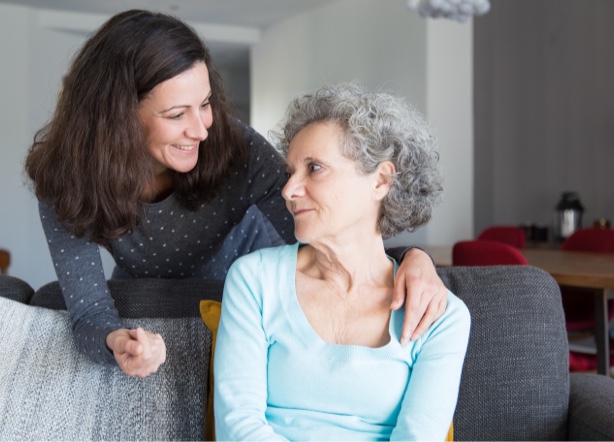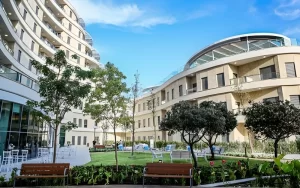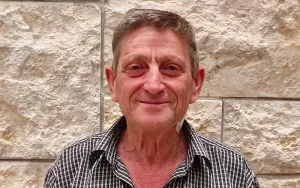The phenomenon of loneliness among the elderly is becoming increasingly serious, both in Israel and worldwide.
According to data from the Central Bureau of Statistics, one-third of individuals aged 65-74 experience loneliness. Among those aged 75 and above, the situation is even worse, and among elderly individuals who are not married(single, divorced, or widowed)more than 50% experience feelings of loneliness.
The consequences of loneliness among the elderly are well-documented-depression, sadness, lack of hope and motivation, feelings of despair, abandonment of medication, giving up on physical activities and healthy eating habits, increased anxiety, and even an impact on cognitive function (such as declining memory and attention) and an increased risk of developing dementia, chronic diseases, and premature death.
And in Israel? We are the second in the world in the number of lonely elderly individuals, and the approach to solving this problem still does not seem imminent. To illustrate, in September 2022,Dr. Irit Laxer, head of the geriatrics department at the Ministry of Health, was quoted online saying, “The Ministry of Health is not doing enough to prevent loneliness and depression among the elderly.
“The picture is clear-the situation is not good(to put it mildly), but there is hope coming from the figures of who care enough to take actions to reduce the phenomenon of loneliness.
The power to change is in our hands.
Meet Michal Hodorland (45), the culture and sports manager of the ‘Palace’ network- fourassisted living facilities operated by the ‘Azrieli Group’. Beyond her official role, Michal see sherself as responsible for empowering the strengths of the residents and creating meaning for them.
How do you ‘fight’ loneliness?
“First of all, by using language itself-instead of ‘lonely,’ I say ‘belonging.’ I choose to focus on the solution and the desired outcome rather than emphasizing the problem itself, that’s where it starts. Secondly, I focus on creating meaning. The residents of the ‘Palace’ homes had meaningful lives before they came to us. They had careers, businesses, families, traveled the world, studied, taught, and more. I aim to create a space where they can utilize the knowledge and experience they have accumulated over the years, and through that, create value for the other residents and, of course, for themselves.
“Does everyone have something to contribute?
“I believe they do. Everyone has something to give, to share, to contribute-and to receive. I alsosee it happening beforemy eyes; I see how many are happy to volunteer! For example, in one ofthe homes, there is a resident who used to be a yoga instructor, and now she guides and teachesthe residents regularly. It’s a classic example of a case where a person can engage in their areaof expertise and feel that life continues to be meaningful at an advanced age. This is how wecreate meaning and empowerment.
“What other steps are taken against the phenomenon of loneliness in assisted living homes?
“A comprehensive approach. It starts from day one with a welcoming and embracing experience.Each resident receives personal guidance, a comprehensive tour, familiarization with some of the existing residents, getting to know the department managers and instructors. We ask about their personal lives before they come to us in a pleasant and respectful manner, learning to recognize the person in front of us. From there, the path to finding suitable activities or connecting with other residents becomes very easy,” said Michal, adding, “Moreover, there is great openness; we encourage healthy communication and urge residents to share their feelings-our professional teams know how to help everyone. Additionally, we understand, for instance, that there might be initial difficulties in the adaptation process; the transition itself can sometimes be traumatic. We acknowledge this and connect the resident with a social worker, involve them in discussion groups and support for new residents on that topic (such as those who have recently moved in)-everyone works for the benefit of the resident and the community.
“And in conclusion, what would you like to add?
Michal chuckles at this point and says, “I am responsible for joy, and there is no better job than that. I choose things that will make the residents feel good, make them laugh, allow them to express themselves, move around, and be active. That’s all you need!
“In Israel, the ‘Palace’ group, operated by the ‘Azrieli Group’, manages four assisted living facilities(Palace Tel Aviv, Palace Ra’anana, Palace Modi’in, and Palace Lehavim). Currently, the group is planning to establish two more assisted living facilities in Rishon LeZion and Jerusalem. ThePALACE assisted living housing network offers its residents the best that the field can offer-high housing standards and maintenance, numerous services for the benefit of the residents, including diverse cultural experiences, health and nutrition services, security, entertainment, workshops, trips, transportation services, nursing, counseling, and medical supervision.
For details and to schedule a visit, call*3666



